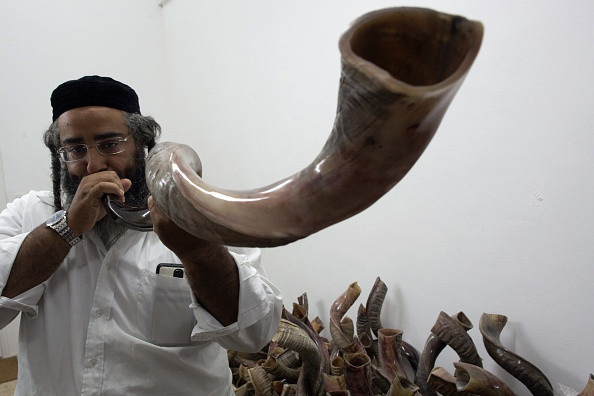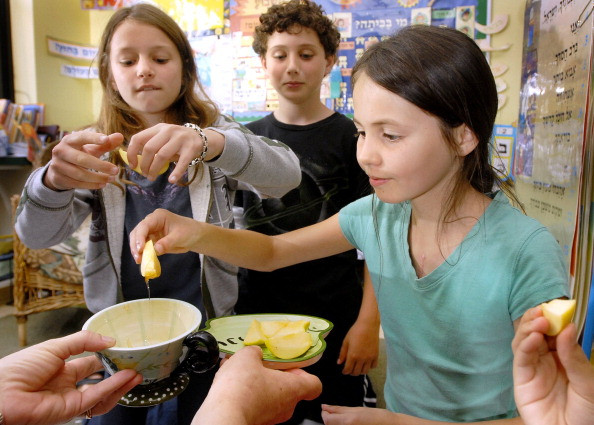Rosh Hashanah 2014: The History Behind the Jewish New Year

Rosh Hashanah is the Jewish New Year - one of the most important celebrations for Jewish people.
It occurs on the first two days of Tishri, the seventh month of the Jewish year, which is believed to be the anniversary of the creation of Adam and Eve. Therefore, the feast is considered a celebration of the making of the world.
No work is permitted during Rosh Hashanah, which this year falls from 24 to 26 September. The Hebrew date is 1 Tishri 5775.
Origins of Rosh Hashanah
Rosh Hashanah is mentioned in the Torah - in the book of Leviticus - as Yom Teruah, which can be translated as the Feast of Trumpets, or the Day of the Sounding of the Shofar, a religious musical instrument which is blown like a trumpet.
In fact, one of the most important observances of this holiday is to listen to the sound of the shofar in the synagogue. A total of 100 notes are sounded each day.
Although the Torah does not provide specific explanations for this practice, some have suggested the shofar's sound is a call to repentance.
However, the shofar is not blown if the holiday falls on Sabbath, a weekly day of rest and worship.
Rosh Hashanah is also referred to as Shabbat Shabbaton, Penultimate Sabbath, or Holy Day to God.
In the Siddur and Machzor Jewish prayer books it is also called Yom Hazikaron, Day of Remembrance.
The Mishnah – a written redaction of Jewish oral traditions - refers to Rosh Hashanah as the Day of Judgment, as it is believed that during this time God opens the Book of Life and begins to decide on people's fate according to how they behaved.

A time for self-introspection
Rosh Hashanah represents the beginning of the new year for people, animals and legal contracts.
It is a time for self-introspection, during which people look back at what they did in the previous year and make plans for the year ahead.
This phase of introspection lasts for 10 days, until Yom Kippur, or the day of Atonement, the holiest day of the year for Jewish people. This period is viewed as an opportunity for Jews to repent and ensure a good fate.
During Rosh Hashanah, people usually eat apples and bread dipped in honey, a symbol of hope for a sweet new year. A circle-shaped bread, known as challah bread, is also eaten to symbolise the circle of life and the cycle of a new year.
A common greeting on Rosh Hashanah is "shana tovah u'metukah", Hebrew for "a good and sweet new year".
© Copyright IBTimes 2025. All rights reserved.






















